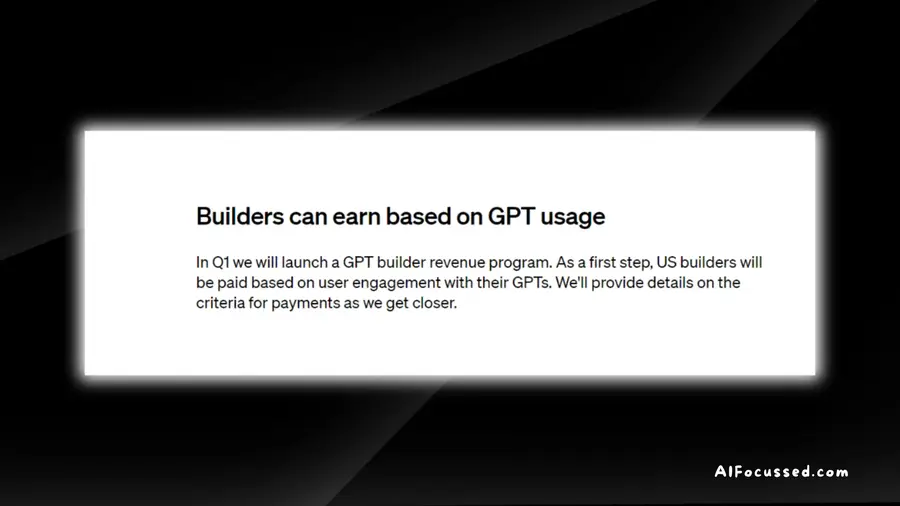OpenAI has unveiled the long-awaited GPT Store, allowing users to access, create, and potentially monetize AI applications built on top of ChatGPT and other large language models. The launch represents a major step towards democratizing and commercializing AI capabilities.
Overview of the GPT Store
The GPT Store provides a marketplace for users to discover custom AI applications, known as GTPs, built by leveraging OpenAI API access to cutting-edge models like ChatGPT, DALL-E, and Claude.
Users can browse featured and trending GTPs across categories like writing, research, programming, education, and more. There is also a search function to find GTPs for specific use cases, like summarizing YouTube videos.
Creating and Sharing GTPs
In addition to using public GTPs, the platform allows anyone to create their own private GTPs using the Create feature. This generates a customized model fine-tuned for a particular task or connected to external APIs and datasets.
Created GTPs can then be shared publicly, making them accessible in the GPT Store for all users after an automated and human review process. Sharing grants opportunities for increased distribution and potential monetization.
Monetizing GTPs
The aspect that has generated the most excitement around the GPT Store is the ability to potentially earn money from shared AI models.
Revenue Sharing Model
In the first quarter of 2024, OpenAI plans to launch a revenue sharing program for qualifying public GTP creators. Payouts will be based on GTP usage and engagement metrics rather than set prices or commissions.

This means creators of the most popular GTPs could earn passive income from OpenAI’s subscription fees. However, only a small fraction of GTPs drive high enough traffic to be lucrative. Unique, proprietary offerings have the best chance to gain traction.
Branding and Attribution
Even without significant earnings, GTP creators can benefit from driving users to external websites. The store allows adding a name, link, and description to public models.
This presents lead generation and branding opportunities for those who share GTPs, even if the direct revenue share is small.
Teams Version and Memory Features
Alongside the GTP Store, OpenAI revealed upgraded ChatGPT plans for teams and hinted at imminent upgrades to memory and context handling.
ChatGPT for Teams

ChatGPT for Teams provides higher usage caps, access to advanced models like DALL-E images generation, and collaboration tools for managing conversations.
The $25 per user monthly plan represents OpenAI’s initial foray into monetizing enterprise applications of its AI. Teams gain a competitive advantage from leveragingcutting models without needing in-house AI expertise.
Persistent Memory Upgrades
OpenAI also suggested significant memory upgrades coming soon to ChatGPT itself. Screenshots reveal the addition of persistent memory between conversations to improve relevancy and recall user preferences.
🚨Just in 🚨
— Linus (●ᴗ●) (@LinusEkenstam) January 10, 2024
GPT memory… 🧠
– Keep the conversation going
– Improves over time
– manage what it should remember
This silently dropped yesterday, and is the start of something potentially groundbreaking.
This truly makes GPT’s personal pic.twitter.com/zosagVdugb
This tackles one of the major current limitations around multi-turn conversations. The context window still resets after a fairly short span of texts, but memory should connect relevant info across chained interactions.
Key Takeaways
The openings of the GPT Store and paid ChatGPT for Teams plans represent crucial milestones in OpenAI’s expanding commercialization. Other key highlights include:
- Democratized access to creating and sharing custom GTP AI apps based on leading models
- New monetization opportunities via usage-based revenue sharing for qualifying public GTP creators
- Upgraded memory and context handling for more consistent and personalized ChatGPT conversations
- Enterprise-focused offerings providing businesses powerful AI capabilities without internal ML expertise
While the debuts indicate OpenAI’s rapid maturation, many open questions remain around maximizing creativity over repetition, monitoring for model biases, and setting expectations appropriately regarding capabilities.
However, the collective launches undoubtedly mark massive progress in advancing and harnessing AI for both businesses and individuals. Unfettered access fuels rapid decentralized innovation that will drive further breakthroughs across nearly every sector.



